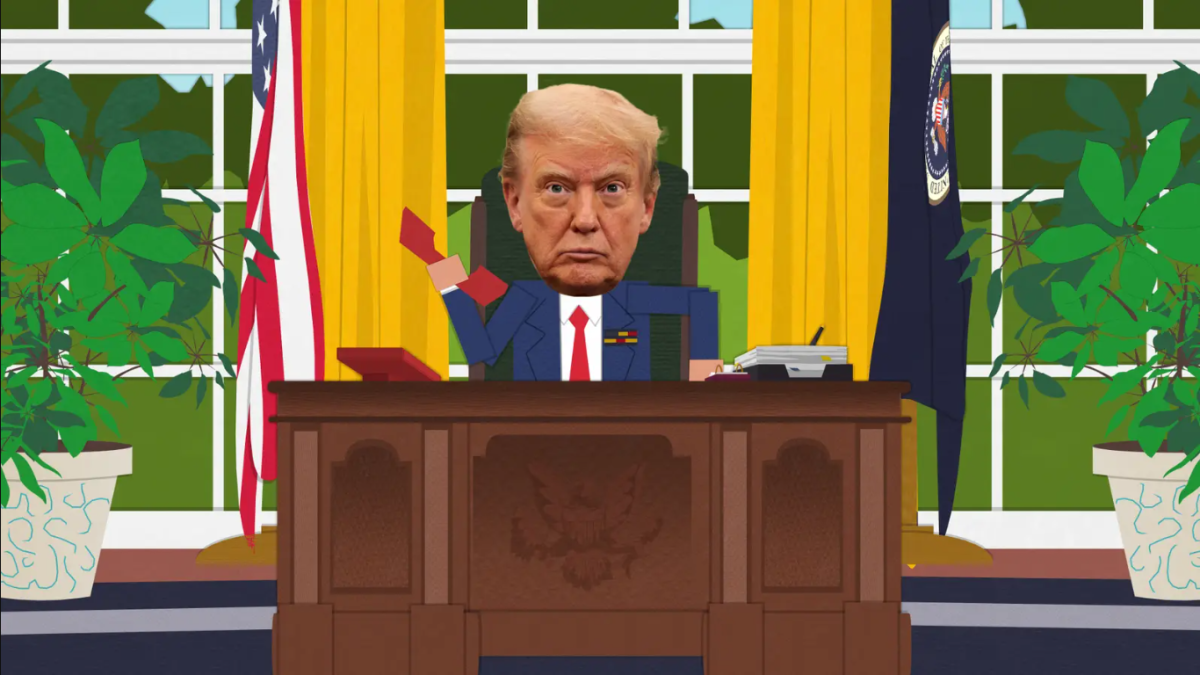In 1947, Jackie Robinson became the first African-American baseball player in the major leagues. When he walked up to the plate, a barrage of derogatory slurs came raining down from the crowd, and he found no relief from his fellow competitors on the field. He was on an island alone, and it took enormous courage to break the color barrier in baseball.
 “42” starts when Brooklyn Dodgers owner Branch Rickey, played by the timeless Harrison Ford, signs Jackie Robinson to a contract within the Dodgers organization. This action evokes major criticism from most baseball fans, because most people approved of segregation and did not want African Americans in the MLB.
“42” starts when Brooklyn Dodgers owner Branch Rickey, played by the timeless Harrison Ford, signs Jackie Robinson to a contract within the Dodgers organization. This action evokes major criticism from most baseball fans, because most people approved of segregation and did not want African Americans in the MLB.
The movie follows Jackie at the start of his career in spring training with the Montreal Royals in 1946, where the abuse from fans begins. Over the course of spring training, Jackie is bombarded by derogatory slurs and even receives threats about what will happen if he doesn’t leave town.
The movie skips ahead to the spring training of 1947, where Jackie makes the major league team. On opening day, Jackie is greeted with raucous cheers from the African-American community, and boos and slurs from the white people. Within the 1947 season, the movie focuses on a couple of games when Jackie has his will tested by fans, opposing players and managers, and even some of his teammates. At the end of the season, Jackie and the Dodgers are in a dogfight for the pennant title with the Cardinals.
Being both a baseball fan and a history buff, the previews attracted my interest, but the movie seemed to move a little slow and it only covered two years of Jackie Robinson’s career. For the casual baseball fan, they might be curious as to what his past was like and how his future turned out .
The acting by Chadwick was admirable, especially considering it was his first time in the spotlight, and of course Harrison Ford can usually do no wrong. The plot just did not do as much as I thought it could do with this movie.
The movie included some intense scenes, most notably a game against the Philadelphia Phillies in which the manager, Ben Chapman, stood up and said the n- word multiple times, causing Jackie to go down into the tunnel and break a bat against the wall because he could not take the abuse anymore. Scenes like that teach the audience how difficult is was to live in that time. It was even difficult to watch from the audience without wanting to jump out of my seat and do something myself.
One of the things that I really liked about the movie is that it really looked like it was filmed in the mid 1940s, not 2013. There is some sort of nostalgia to watching movies that are set in historical locations, such as Ebbets Field, and this movie definitely fell into that category.
Overall, the only thing that I found lacking was the depth of the plot, but everything else met my expectations. I would recommend this movie to everyone, especially baseball fans and historians. However, the film does include some language and content that people might not want to hear and see.



